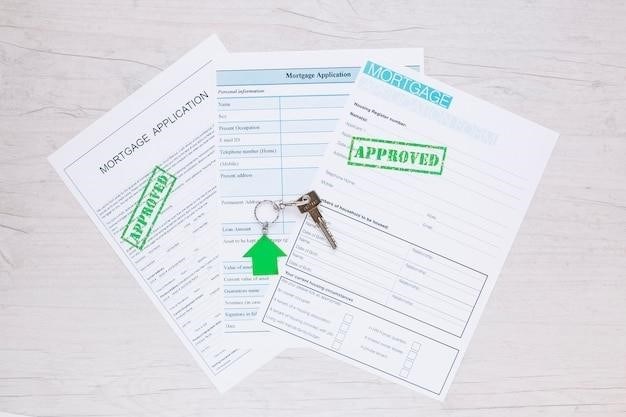Attestation d’hébergement⁚ A Vital Document for Immatriculation
An Attestation d’hébergement, also known as a “certificate of accommodation,” is a crucial document required for vehicle registration (immatriculation) in France․ It serves as proof of residence for individuals who do not own or rent their own property․ This document is essential for obtaining a carte grise, the French vehicle registration certificate, which is necessary for driving legally in France․
What is an Attestation d’hébergement?
An Attestation d’hébergement is a sworn statement, or declaration on honor, written by a person (the host) who is providing free accommodation to another individual (the guest)․ It serves as a legal document that confirms the guest’s residency at the host’s address․ This document is essential for various administrative procedures in France, including vehicle registration (immatriculation), as it acts as a proof of residency for individuals who do not own or rent their own property․
The Attestation d’hébergement typically includes details about both the host and the guest, such as their names, addresses, dates of birth, and the duration of the accommodation․ It also specifies that the accommodation is provided free of charge, meaning no rent or other financial compensation is involved․
The Attestation d’hébergement is a critical document for individuals who are temporarily residing at someone else’s home, as it provides them with a legal address for administrative purposes․ It can be handwritten or typed, but it must be signed by both the host and the guest and dated․
In essence, the Attestation d’hébergement is a formal declaration that verifies the guest’s residency at the host’s address, allowing the guest to access services and fulfill administrative requirements in France․ It is particularly relevant for vehicle registration (immatriculation), as it provides the necessary proof of residency for obtaining a carte grise․
Why is an Attestation d’hébergement Necessary for Immatriculation?
In France, the process of vehicle registration, known as immatriculation, requires individuals to provide proof of residency․ This is because the vehicle registration certificate, or carte grise, is sent to the owner’s official address․ The Attestation d’hébergement plays a vital role in this process, as it serves as a legal document that confirms the residency of individuals who do not own or rent their own property․
When applying for a new carte grise or changing the address on an existing one, individuals who are not residing at their own address must provide an Attestation d’hébergement to demonstrate their current place of residence․ This document proves that they are living at the host’s address with their consent․
The Attestation d’hébergement is essential for the immatriculation process because it ensures that the authorities have a valid address for the vehicle owner․ It also helps to prevent fraud and the misuse of vehicle registration․ By requiring this document, the French authorities can ensure that vehicles are registered to individuals who are legally residing in the country․
In short, the Attestation d’hébergement is a critical requirement for immatriculation in France because it establishes a verifiable link between the vehicle owner and their place of residence, ensuring the accuracy and legitimacy of the registration process․
What Information Should be Included in an Attestation d’hébergement?
An Attestation d’hébergement must contain specific information to be considered valid and accepted for immatriculation purposes․ The document should clearly state the details of both the host and the guest, along with the duration of the accommodation arrangement․
The information typically included in an Attestation d’hébergement includes⁚
- Host’s Information⁚ Full name, date of birth, address, and signature of the person providing accommodation․
- Guest’s Information⁚ Full name, date of birth, and nationality of the person being accommodated․
- Accommodation Details⁚ The address where the guest is staying, the duration of their stay, and whether the accommodation is free or paid․
- Declaration of Consent⁚ A statement from the host confirming that they are aware of the guest’s residency and consent to their stay․
It is important to ensure that all information is accurate and complete, as any discrepancies or omissions could invalidate the document․ Additionally, the Attestation d’hébergement should be dated and signed by both the host and the guest․
For immatriculation purposes, it is recommended to keep a copy of the Attestation d’hébergement for your records․ This will help to ensure that you have a valid document in case it is needed for future reference or verification․
How to Obtain an Attestation d’hébergement?
Obtaining an Attestation d’hébergement can be done through various methods, depending on the individual’s circumstances and the specific requirements of the relevant authorities․ Here are some common ways to acquire this document⁚
- Downloadable Templates⁚ Numerous websites, including Cartegrise․com and Medimmigrant, offer free downloadable templates for Attestation d’hébergement in PDF format․ These templates can be customized with your personal information and printed for use․
- Create Your Own⁚ If you prefer, you can write your own Attestation d’hébergement using a word processing program such as Microsoft Word․ Ensure you include all the necessary information, as outlined in the previous section․
- Contact the Host⁚ If you are being hosted by someone, it is advisable to contact them directly to request an Attestation d’hébergement․ They may be able to provide a handwritten document or a digitally generated one․
- Local Administrative Offices⁚ In some cases, you may need to contact local administrative offices, such as the mairie (town hall), to obtain an Attestation d’hébergement․ They may have specific forms available or provide assistance with the process․

It’s important to note that some websites may charge a fee for downloading a template or providing an Attestation d’hébergement․ Always check the terms and conditions before downloading or using any online service․
Legal Requirements and Penalties for False Attestations
It is crucial to understand that providing false information on an Attestation d’hébergement is a serious offense in France․ The French legal system considers such actions as fraud and imposes significant penalties․ Article 441-7 of the French Penal Code states that any person who creates a false document, including an Attestation d’hébergement, with the intention of causing harm, can face imprisonment for up to one year and a fine of €15,000 (fifteen thousand euros)․
This legal framework emphasizes the importance of honesty and accuracy when completing an Attestation d’hébergement․ It is essential to ensure that all information provided is truthful and supported by relevant documentation․ Failure to do so could lead to serious legal consequences, including fines, imprisonment, and potentially, the denial of vehicle registration․
The French authorities take a strict approach to combating fraud, and the penalties for providing false information are intended to deter individuals from engaging in such activities․ It is always advisable to seek legal counsel if you have any doubts or questions regarding the legal requirements for completing an Attestation d’hébergement․
Attestation d’hébergement for Minors
When a minor (under the age of 18) is applying for a vehicle registration, specific considerations apply to the Attestation d’hébergement․ In such cases, parental consent is required․ The Attestation d’hébergement should include a statement from the parent or legal guardian confirming that they authorize the minor’s residence at the stated address․ This authorization is crucial for demonstrating legal guardianship and ensuring the minor’s well-being․
The Attestation d’hébergement for minors should be accompanied by a copy of the parent’s or legal guardian’s identity document, as well as proof of their residency at the address provided․ This documentation serves as verification of the parent’s or guardian’s authority and their ability to provide accommodation for the minor․
It is important to note that the French authorities may require additional documentation or information depending on the specific circumstances of the minor’s situation, such as their nationality or immigration status․ It is recommended to consult with the relevant authorities or a legal professional to ensure that all necessary requirements are met when applying for a vehicle registration for a minor․
Attestation d’hébergement for Foreign Nationals
For foreign nationals residing in France, the Attestation d’hébergement plays a crucial role in vehicle registration․ It serves as evidence of legal residency for individuals who do not have a French residence permit․ The Attestation d’hébergement must clearly state the foreign national’s name, date of birth, and nationality․ It should also specify the duration of their stay at the address provided and the nature of their relationship with the host․
The host, who is the individual providing accommodation, must provide a copy of their identity document and proof of residency at the address mentioned in the Attestation d’hébergement․ These documents serve to verify the host’s identity and their ability to provide accommodation․
Foreign nationals may also need to provide additional documentation, such as a visa or residence permit, depending on their specific situation․ It is highly recommended to consult with the French authorities or a legal professional to obtain guidance on the specific requirements for vehicle registration as a foreign national in France․
Downloadable Attestation d’hébergement Templates
To simplify the process of creating an Attestation d’hébergement, numerous downloadable templates are readily available online․ These templates provide a standardized format, ensuring all essential information is included․ They are typically available in PDF format, allowing for easy printing and completion․
Many websites offer free downloadable Attestation d’hébergement templates․ These templates are usually provided in a user-friendly format, with clear instructions and fields to be filled in․ Some websites even offer pre-filled templates that can be customized with personal information․
When using a downloadable template, it is crucial to ensure that the information provided is accurate and complete․ Any inaccuracies or omissions could lead to rejection of the document by the authorities․ It is always advisable to review the template carefully before printing and signing it․
Important Considerations for Using an Attestation d’hébergement
While an Attestation d’hébergement can be a valuable document for immatriculation, it is essential to be aware of certain crucial considerations; Firstly, the document should be completed accurately and truthfully․ Any false information provided could result in serious legal consequences; It is advisable to consult with the relevant authorities or a legal professional to ensure compliance with all regulations․
Secondly, it is important to understand the duration of the attestation․ The validity period may vary depending on the specific circumstances and the issuing authority․ It is essential to review the terms and conditions of the attestation before using it for immatriculation purposes․
Finally, it is crucial to note that the acceptance of an Attestation d’hébergement for immatriculation is ultimately at the discretion of the issuing authority․ The authorities may require additional documentation or verification before approving the document․ It is always best to contact the relevant authorities beforehand to clarify the specific requirements for your situation․
In conclusion, the Attestation d’hébergement is a vital document for individuals seeking to register a vehicle (immatriculation) in France who do not own or rent their own property․ It serves as a crucial piece of evidence for establishing residency and is essential for obtaining a carte grise․ However, it is crucial to use this document responsibly and ensure that all information provided is accurate and truthful․ Failure to do so could lead to legal repercussions․
Individuals seeking an Attestation d’hébergement should familiarize themselves with the legal requirements and procedures involved․ They should also consider the potential risks and consequences associated with providing false information․ By carefully considering these factors, individuals can ensure they use this document correctly and avoid any potential legal issues․
